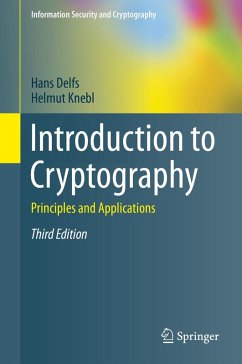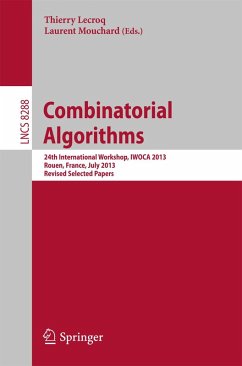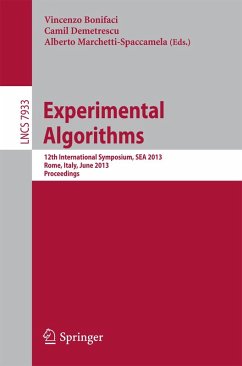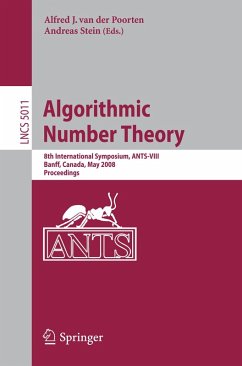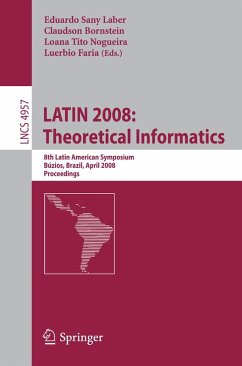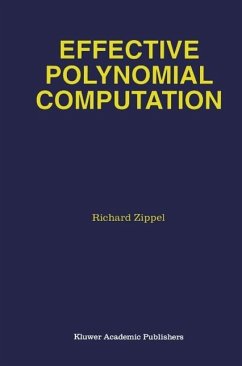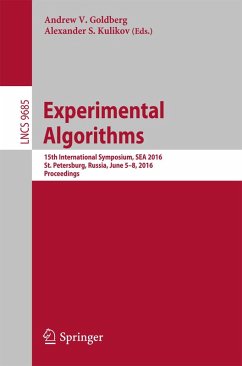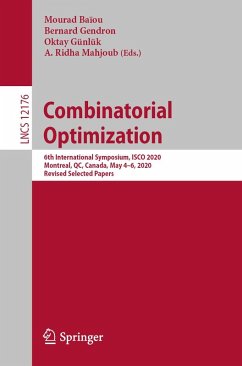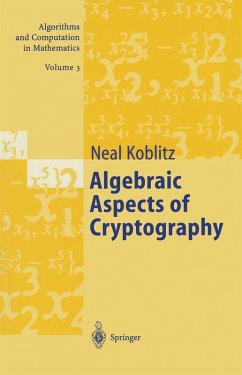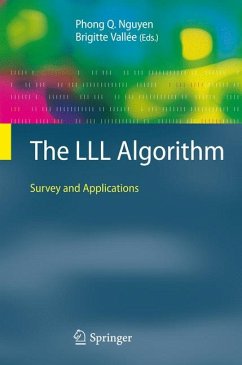
The LLL Algorithm (eBook, PDF)
Survey and Applications
Redaktion: Nguyen, Phong Q.; Vallée, Brigitte
Versandkostenfrei!
Sofort per Download lieferbar
175,95 €
inkl. MwSt.
Weitere Ausgaben:

PAYBACK Punkte
88 °P sammeln!
Computational aspects of geometry of numbers have been revolutionized by the Lenstra-Lenstra-Lovasz ¿ lattice reduction algorithm (LLL), which has led to bre- throughs in elds as diverse as computer algebra, cryptology, and algorithmic number theory. After its publication in 1982, LLL was immediately recognized as one of the most important algorithmic achievements of the twentieth century, because of its broad applicability and apparent simplicity. Its popularity has kept growing since, as testi ed by the hundreds of citations of the original article, and the ever more frequent use of LLL as ...
Computational aspects of geometry of numbers have been revolutionized by the Lenstra-Lenstra-Lovasz ¿ lattice reduction algorithm (LLL), which has led to bre- throughs in elds as diverse as computer algebra, cryptology, and algorithmic number theory. After its publication in 1982, LLL was immediately recognized as one of the most important algorithmic achievements of the twentieth century, because of its broad applicability and apparent simplicity. Its popularity has kept growing since, as testi ed by the hundreds of citations of the original article, and the ever more frequent use of LLL as a synonym to lattice reduction. As an unfortunate consequence of the pervasiveness of the LLL algorithm, researchers studying and applying it belong to diverse scienti c communities, and seldom meet. While discussing that particular issue with Damien Stehle ¿ at the 7th Algorithmic Number Theory Symposium (ANTS VII) held in Berlin in July 2006, John Cremona accuratelyremarkedthat 2007would be the 25th anniversaryof LLL and this deserveda meetingto celebrate that event. The year 2007was also involved in another arithmetical story. In 2003 and 2005, Ali Akhavi, Fabien Laguillaumie, and Brigitte Vallee ¿ with other colleagues organized two workshops on cryptology and algorithms with a strong emphasis on lattice reduction: CAEN '03 and CAEN '05, CAEN denoting both the location and the content (Cryptologie et Algori- miqueEn Normandie). Veryquicklyafterthe ANTSconference,AliAkhavi,Fabien Laguillaumie, and Brigitte Vallee ¿ were thus readily contacted and reacted very enthusiastically about organizing the LLL birthday conference. The organization committee was formed.
Dieser Download kann aus rechtlichen Gründen nur mit Rechnungsadresse in A, B, BG, CY, CZ, D, DK, EW, E, FIN, F, GR, HR, H, IRL, I, LT, L, LR, M, NL, PL, P, R, S, SLO, SK ausgeliefert werden.




